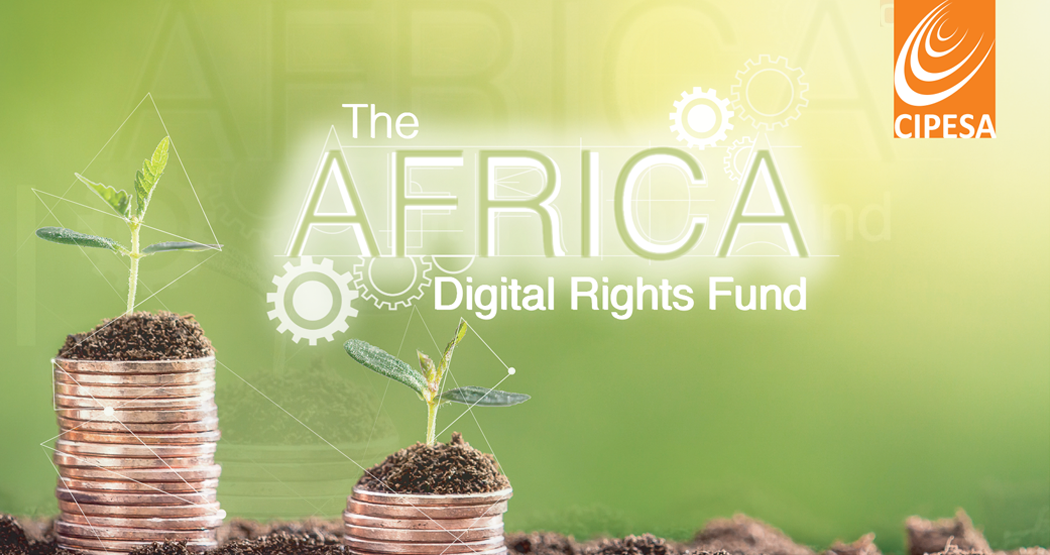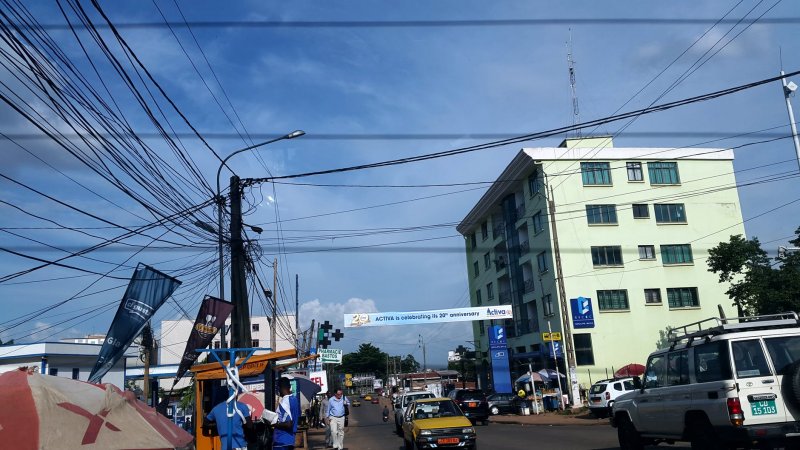By Simone Toussi |
The Information and Communications Technology (ICT) sector in Cameroon has evolved considerably since 2010, despite the persistence of the digital divide and affronts to freedom of expression online. The country’s digital landscape was boosted by the launch in May 2016 of the National ICT Strategic Plan 2020, which recognised the digital economy as a driver for development. The country has registered increased investments in telecommunication and ICT infrastructure, including extension of the national optical fibre backbone to about 12,000 km, connecting 209 of the country’s 360 sub-divisions, and neighbouring countries such as Chad, Gabon, Equatorial Guinea, the Central African Republic and Nigeria.
By 2018, the Ministry of Posts and Telecommunications reported that mobile phone subscribers stood at 18.8 million representing a penetration rate of 83%, while internet penetration was 35%. There are four big telecommunications service providers in Cameroon – MTN, Orange, Viettel and the state-owned CAMTEL. With 48% of the mobile market share or 8.7 million subscribers, MTN is the leading service provider, according to its report for the first quarter of 2019.
Over the years, Cameroon has scored some improvements in ICT development and affordability. For instance, on the ICT Development Index (IDI) of the International Telecommunications Union (ITU), its value improved from 1.54 in 2010 to 2.38 in 2017 – against the highest global value of 8.98 for Iceland, and between the highest African value of 5.88 for Mauritius and the lowest 0.96 for Eritrea. Cameroon thus ranked at 149 out of the 176 countries assessed, with more than twenty African countries ranked above it. On affordability of the internet, Cameroon’s ranking has also slightly improved – currently ranked 50, up from 53 in 2015, out of 60 countries. This still makes internet access in Cameroon among the most expensive of the countries surveyed.
Meanwhile, internet shutdowns, arrests and intimidation of online critics, and censorship of online content raise concerns about the government’s commitment to nurturing a sustainable and inclusive digital society.
ICT Legal and Regulatory Frameworks
The Cameroonian Constitution provides for freedom of expression, freedom of the press and of communication. It states: “the freedom of communication, of expression, of the press, of assembly, of association, and of trade unionism, as well as the right to strike shall be guaranteed under the conditions fixed by law”.
Relevant agencies governing the sector include the Telecommunication Regulatory Agency (ART), and the National Telecommunications Agency (ANTIC) – both under the mandate of the Ministry of Posts and Telecommunications (MINPOSTEL). Other entities such as the Ministry of Communication and the National Council of Communication also has regulatory and advisory roles with regards to media.
These agencies are guided by key laws that govern ICT including Law n° 98/014 of July 14, 1998 governing telecommunications and its amendment of December 29, 2005; Law n° 2010/013 of December 21, 2010 on e-Communications, and its amendment of April 2015; Law n° 2010/012 of December 21, 2010 on Cyber Security and Cybercrime; and Law n° 2010/021 of December 21 2010 governing e-Commerce. Other legalisation related to ICT are the Framework Law n° 2011/012 of May 6, 2011 on Consumer Protection, Law n° 2001 / 0130 of July 23, 2001 establishing the minimum service in telecommunications, and Law n° 98/013 of July 14, 1998 on competition which governs all sectors of the national economy.
The 2014 Law on the Suppression of Terrorist Acts, which was enacted to support the fight against terrorism and growing threats from the jihadist group Boko Haram, has been used as a tool to suppress journalism and opinion critical of the government under the guise of preventing the spread of fake news and threatening national security. In January 2018, the Minister of Justice issued a directive to magistrates to “commit, after clear identification by the security services, to legally prosecute any person residing in Cameroon who uses social media to spread fake news”.
A new law is the 2019 Finance Act, which under Section 8, introduces taxation on software and application downloads produced outside of Cameroon, at a flat rate of 200 Central African Francs (CFA), equivalent to USD 0.34, per download. Whereas the government is yet to issue implementation guidelines for the taxes, once in effect, they will result in additional costs for digital platform users.
Access and Affordability
Article 4 of the 2010 eCommunications law states that every citizen “has the right to benefit from electronic communications services”. The same law establishes a Universal Service Access Fund, aimed at ensuring equal, quality and affordable access to services (Articles 27-29). Whereas internet and mobile telephony have registered growth, access and affordability remain a challenge, especially among rural and poor communities. Currently, the average cost of 1GB of data is 2,000 CFA (USD 3.4) per month, and with the proposed levy of 200 CFAs (USD 0.34) on software and application downloads, costs are expected to further increase. With an estimated per capita income of USD 1,500 in 2018, the prevailing rates are over and above the Alliance for Affordable Internet’s recommendation of 1GB of data costing 2% or less of average monthly income.
Gender Digital Divide
A 2015 report by the Web Foundation found that in Cameroon only 36% of women compared to 45% of men were internet users. The key factors inhibiting women’s access to the internet and digital devices in Cameroon included literacy levels, cost relative to income, access to devices, perceived relevance and usefulness, lack of time and poor infrastructure. Towards addressing the digital gender divide, the National ICT Strategic Plan 2020 states among its objectives the need to “support the development of female skills in the field of digital engineering“, and to “support technological and scientific vocations for women“. However, these objectives are not linked to any specific projects within the plan’s priority action areas.
Meanwhile, without much in the way of provisions for gender, cultural and linguistic diversity, the country’s ICT laws remain largely silent on diversity and inclusion within the ICT sector. Further, seven years since its passing, the Framework Law on Consumer Protection, which includes provisions on consumer rights and quality of services within the technology sector, remains largely unenforced due to the absence of implementation guidelines.
Privacy and Data Protection
Cameroon has no data protection or privacy law. However, the national Constitution amended by the Law N°. 96-06 of 18 January 1996, guarantees privacy of communications in its preamble, stating that “the privacy of all correspondence is inviolate. No interference may be allowed except by virtue of decisions emanating from the Judicial Power”. The 2010 Cybersecurity and Cybercrime law also provides for the privacy of communications under Article 41 and outlaws the interception of communications under Article 44. The obligation for service providers to guarantee users’ privacy and the confidentiality of information is covered under Articles 42 and 26.
According to Article 26(1); “Information system operators shall take all technical and administrative measures to ensure the security of the services offered. To this end, they should be equipped with standardised systems that enable them to identify, evaluate, process and continuously manage the risks related to the security of information systems in the context of services offered directly or indirectly”. However, the law does not specify the guiding principles for the collection and processing of personal data, nor users’ right to access and update such data.
Network Disruptions
The government of Cameroon has in the past initiated two internet shutdowns in the Anglophone region of the country, which together lasted 240 days and drew international condemnation. The shutdowns were imposed in the wake of ongoing strikes, fatal violence and protest action against the alleged “francophonisation” and marginalisation of English speakers who claim that “the central government privileges the majority French-speaking population and eight other regions.” It is estimated that the regional internet shutdown cost USD 38.8 million in addition to affecting access to public services, education, and daily livelihoods.
Guaranteeing an Inclusive Digital Space in Cameroon
Cameroon’s government has professed its intention to leverage the digital economy for sustainable development and to establish an enabling legal and regulatory framework. However, developments such as taxation of application downloads, internet disruptions, and limited efforts to bridge the digital gender divide, indicate a shrinking digital space and are likely obstacles to the uptake of ICT. Efforts are thus necessary to ensure a digital environment that is both open and accessible to all, upholds users’ safety and security, and guarantees constitutional rights. These efforts should include a strengthened legal framework with implementation guidelines to ensure enforcement, compliance monitoring, and accountability.
Moreover, the adoption of a specific law on privacy and data protection is recommended, so as to guarantee the principles of anonymity and consent, and in line with international best practice. For civil society organisations, it is recommended to intensify advocacy against regressive policy and practice including internet disruptions, and the enforcement of consumer protection and universal services. Crucially, civil society should play an active role in policy consultative processes and citizen sensitisation on digital rights and literacy.





